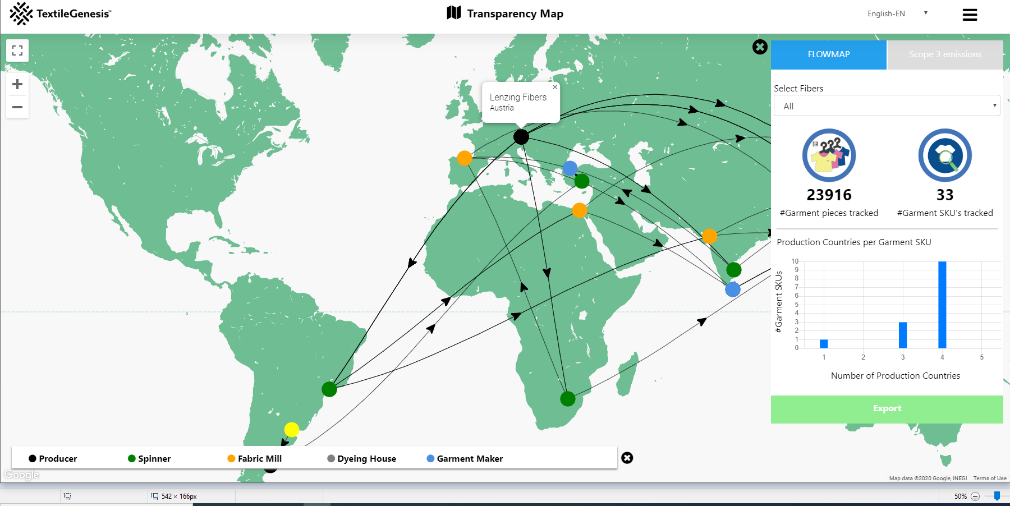please select your preferred language
please select your preferred language
Over six months into the outbreak of COVID-19, the economic impacts of the pandemic across all industries have now become apparent. In the fashion segment, high-street stores have been massively affected by the decrease in consumption, with Zara and H&M announcing large-scale store closedowns recently. On top of this, as consumers are becoming more eco-conscious, the global fashion industry had also been confronted by concerns surrounding its sustainability.
In light of this, the TENCEL™ brand is now introducing “TENCEL™ Insights”, a newsletter series featuring conversations with textile industry experts to discuss trends, insights and opportunities in the post-pandemic world. “TENCEL™ Insights” will cover various segments in the textile industry, ranging from home textiles, intimate wear, everyday ready-to-wear, functional clothing and footwear to denim.
To kick-start the “TENCEL™ Insights” series, we will first take a look at the overall change the textile industry is now experiencing with Florian Heubrandner, Vice President Global Business Management Textiles at Lenzing AG.

===
Q: How has COVID-19 re-shaped fashion and textile? What other changes are you expecting for the industry?
Florian: The textile industry has been undergoing many changes over the past few years, even before the pandemic hit. For instance, in recent years, we have witnessed an increasing number of brands trying to enhance sustainability and transparency in their supply chains.
As more industry practitioners realize the need for greater transparency and sustainability, established industry indicators like the Higg Index and Canopy’s Hot Button Ranking have been receiving more attention. Very soon, fast fashion will be replaced with a new era of sustainable fashion in the textile industry ecosystem that values higher quality.
While COVID-19 is affecting global economies, it has been a wake-up call to many. More consumers now realize the detrimental impact “business as usual” has on the environment. This prompts accelerated change among consumers towards thinking more sustainably. We have already observed that many consumers are more likely to pay closer attention to their consumption patterns and make more conscious shopping decisions as we recover from the pandemic.
With such change, fashion brands are yet to face the new challenges brought about by the lack of transparency in their supply chains as they try to add sustainable products to their collections. At the same time, it could also be costly for less experienced fabric mills or brands to commit to eco-products, when the whole industry is under pressure to reduce production costs.
Q: In view of these challenges, what has TENCEL™ been doing to support business partners?
Florian: Lenzing has been in this industry for over 80 years, and to us, building and sustaining long-term relationships with industry partners and customers is key to our success. As we face the global pandemic alongside partners and customers, we are committed to facilitating business recovery, where our ultimate goal is to help brands move towards a more competitive and sustainable business model. In order to achieve this, instead of being a mere supplier of fiber materials, we also hold discussions with partners and customers on how to best source high quality raw materials for their sustainable collections.
For instance, with limited experience and low levels of transparency along the supply chain, some brands are unsure about whether the fabric mills or spinners they work with can really provide sustainable solutions. This is where we step in as an industry consultant to deliver added value to brands through connecting them with the right partners who also commit to sustainable products. This could help brands save time and cost while identifying the perfect sustainable partners in their supply chain.
At Lenzing, we are committed to producing high quality sustainable fibers, including fibers made from recycled materials. Additionally, our partnership with TextileGenesis™, a pioneering blockchain fiber tracing system, can help brand partners achieve transparency across their supply chains at ease. Our pilot project with Hong Kong-based brand Chicks last year was a great success, as we were able to drive data integrity and demonstrate ease of technology use for the brand.

Lenzing Transparency Map on TextileGenesis™platform
Q: As the world looks towards an eco-friendlier post-pandemic world, what are your three top tips for incorporating sustainability into our daily routine?
Florian: As we start thinking about returning to our everyday lives, I think everyone can find their own little ways to be more sustainable on a daily basis. There are a few things that I usually try to do. Instead of driving my car all the time, I opt for public transport, cycling or walking whenever possible. Secondly, I try to “eat consciously”, and go for more organic or sustainable food options – which I find often taste better too. Thirdly, to reduce waste, I go for quality garments that last longer rather than low quality clothing that needs more frequent replacing.
